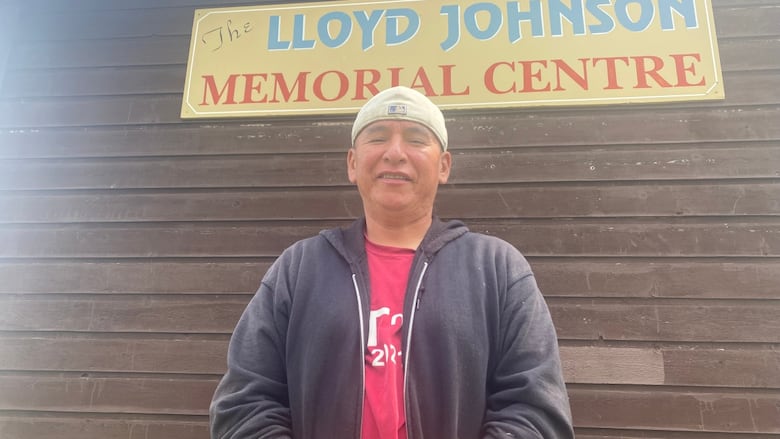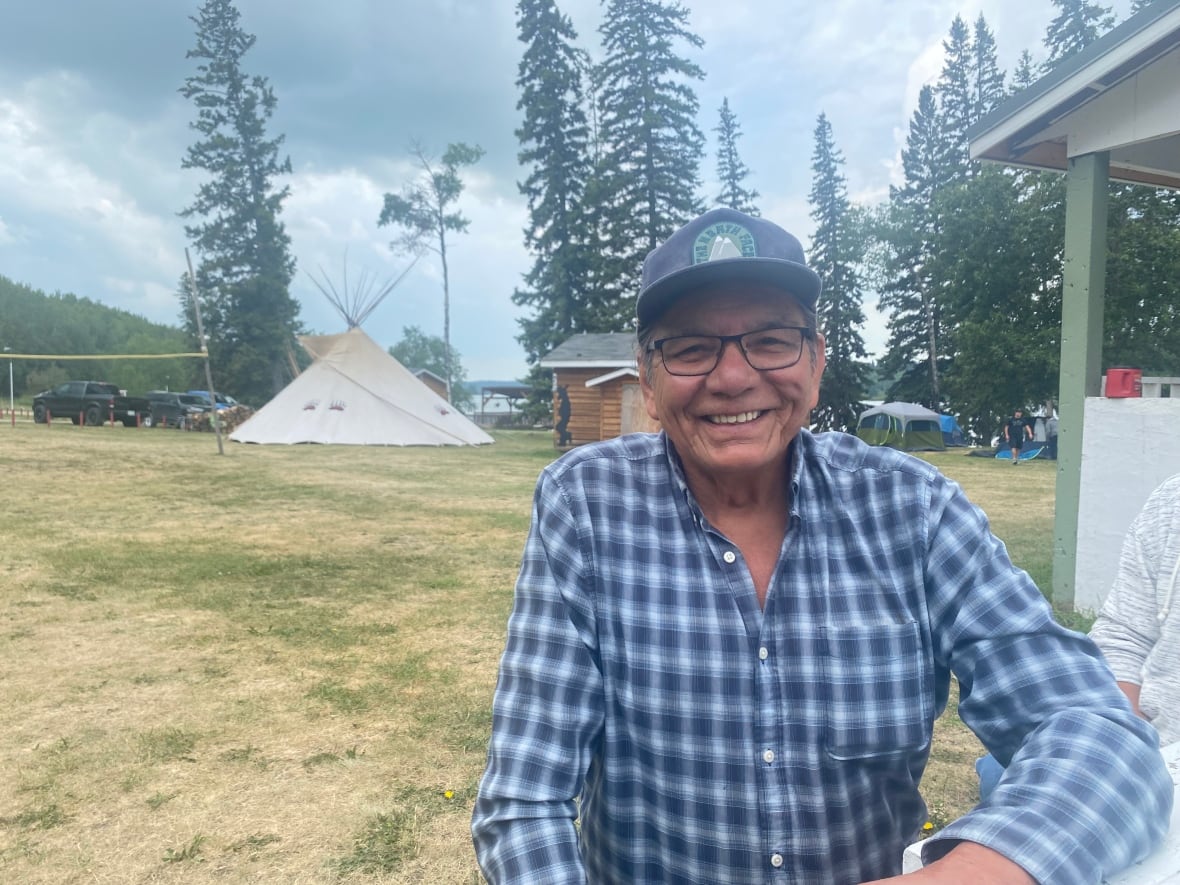Meet Cheech: this Sturgeon Lake healing guide turned from a life of drugs to plant medicine
First Nation promotes health by advocating for a return to land-based living

CBC's virtual road trip series Land of Living Stories explores the hidden gems across Saskatchewan. Reporter Janani Whitfield hit the road to Sturgeon Lake First Nation in search of inspiring stories of community spirit. This is the first of a two-part series from that community.
Step inside Sturgeon Lake First Nation's healing lodge, and the smell of drying plants fills the air. Elsewhere in the province, fires rage and smoke fills the sky, but this morning, all is clear and peaceful here in this First Nation that sits on the shores of Sturgeon Lake, surrounded by towering trees.
Through the course of the morning, Darren Turner — known to locals as Cheech and the reserve's pharmacist — gets a wave of requests from people looking for his help to find a similar peace within themselves.
Want to get rid of heartburn? There's a traditional medicine for that. Want to get rid of negative energy? He hands a man some diamond willow and tells him to burn it in his house.
As a respected guide to healing, people seeing Turner now would never know he's had to fight his own inner demons.
"I want to be part of helping people because people helped me through my addictions and helped me through my trauma that I went through," he said.
Turner is focused on how to support the health of the people in his nation. It's top-most in his mind and the mind of Willie Ermine, the nation's traditional health co-ordinator.
Their work isn't surface level. It's at the very heart of the earth and land they live on. Here on their land, they say they can find 90 per cent of the traditional medicines they need to treat any ailment.
"I tell people our Cree culture here in the community is like a bag of treasures, and we're not using these treasures," said Ermine.
"The more you dig into our treasure bag, the more you uncover all these beautiful things that we have, but we have to grow them."

Ermine notes ancestors of Sturgeon Lake First Nation have lived in this area for thousands of years, with Indigenous knowledge keeping their people healthy and alive for centuries. It's Ermine's mission in life to share this knowledge with others, particularly young people.
"This is an opportunity to keep showing them, to keep hammering away at this image that we can be a healthy community without alcohol, without drugs. But it needs community cohesion," he said.
From violence to medicine
It was turning to the land and its medicines that gave Turner his own purpose.
Growing up, life was harsh for him growing up in a home where both his parents dealt with addictions and trauma from having lived through residential schools.
"I grew up seeing violence, I grew up seeing alcoholism," he said, adding he started drinking at the age of seven or eight. "We didn't have no role models."
By the time he was 16, he described himself as "a full-blown junkie."
But after 15 years of living that life, he'd seen too many of his friends die, and he was also hospitalized for IV treatment. Then his father got sick.
"I kind of grew up not liking my dad because of [him] just not being a good role model to me," he said, adding that when his father got sick, it reminded him of the times when his father had been caring toward him.
"When I told him I wanted to quit my addictions, he encouraged me," he said, adding it was the first time in a long time that he listened to what his father had to say.
"I said, 'OK, I'll try it.' So we kind of made a bet and then about two weeks later he passed away."
That led to Turner seeking methadone treatment and counselling, and a spiritual awakening within himself. When someone recommended he attend a medicine camp in Manitoba, he took the opportunity, which led to four years of learning traditional medicines.
As someone living with Hepatitis C, he said he could see the benefit himself when guides showed him the uses of dandelion root to cleanse his liver. He felt clearer in his own mind and once-sluggish body after following their teachings.
"It's not just taking the dandelion, just like going with it, but at the same time, going along with that medicine too, taking care of yourself … having a good mind."
He and others in this nation just wrapped up an annual trip to the mountains, inviting others to come with them to harvest some of the medicines that can't be found in the local region. These harvested medicines will be shared freely, with Turner only asking for an offering of tobacco or cloth in return.
He only hopes to live a good life, and help others do the same.
"Most of the times it was pretty negative when I was growing up, and now I have a grandson," he said. "I wanna hug him, I wanna kiss him, you know, things like that … I wanna be around for a long time for me to show them something good."
He believes it's his turn to show others unconditional love and support, part of a domino effect for others to become part of a healthier community.
"And I know I'll see one day that it's gonna be that way."

